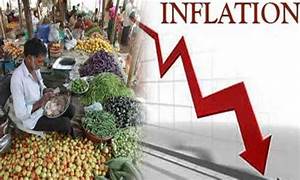Digital Zeitgeist – Taming the Tide: A Perspective on Food Inflation From Sainsbury’s Boss
Food inflation has been an economic spectre looming over the British populace, instigating mounting concerns. However, recent claims from Sainsbury’s, the UK’s second-largest supermarket, present a different narrative. According to Simon Roberts, Sainsbury’s Chief Executive, the inflation rate of food prices is showing signs of deceleration. This perspective brings a sigh of relief to a nation grappling with the rising cost of living and strained household budgets.
Despite official figures indicating a persistently high food inflation rate of 18.3%, Mr Roberts insists that price hikes have begun to stall. In an optimistic trading update for the first quarter of the financial year 2023-2024, ending 24 June, Roberts claimed that the prices of the retailer’s 100 most popular products had fallen over the recent quarter.
Fuelled by this reduction in prices, Sainsbury’s registered an impressive 11% increase in grocery sales during the same period. This growth, the company says, is due to customers’ response to these price cuts, resulting in more purchases. A strategic discount of over £60m across 120 essential items also contributed to this sales surge.
These impressive figures are not exclusive to the food sector. Sainsbury’s overall shop prices witnessed an annual rise of 8.4% up to June, compared to the 9% recorded in the preceding year. A report from the British Retail Consortium and NielsenIQ suggested this deceleration, attributing the robust sales to favourable weather conditions and the performance during bank holidays.
In fact, Sainsbury’s reported a “particularly strong performance” during these bank holidays and an all-time high for sales over the Easter weekend. The trading update also highlighted the steady growth in customers returning to stores, demonstrating increased spending in convenience stores and supermarkets.
However, this sunny picture was not mirrored in all sectors of Sainsbury’s operation. Clothing sales, for instance, dipped by 3.7%, impacted by cooler weather conditions, although they rallied once the warmer weather set in. Fuel sales experienced a significant decline, falling by 21.4% during the 16 weeks leading up to June 2023, compared to a 2.8% drop in the last quarter of the previous financial year.
Fuel sales, which had soared by almost 50% in the same period the previous year, were significantly impacted by an investigation from the Competition and Markets Authority (CMA). The CMA’s scrutiny into the fuel market revealed that increased supermarket profit margins resulted in drivers paying an extra 6p per litre for fuel.
Despite these challenges, Sainsbury’s CEO reasserted the company’s commitment to battling inflation and providing the best prices for customers. He stated, “We are putting all of our energy and focus into battling inflation so that customers get the very best prices when they shop with us, particularly now as household budgets are under more pressure than ever.”
However, as we approach this data with a devil’s advocate viewpoint, it’s essential to consider that the overall inflation figures remain stubbornly high. While Sainsbury’s reports point towards a slowdown, there is still a long way to go. The rate of food inflation, according to the latest official figures, remains fixed at a worryingly high 18.3%.
Furthermore, the decline in fuel sales indicates an issue that needs addressing, particularly given the CMA’s investigation results. The current economic climate and concerns around the cost of living may force consumers to look for cheaper alternatives, further impacting supermarket profits.
Therefore, while the current reports from Sainsbury’s paint a promising picture, the road ahead remains uncertain. A complex interplay of various economic factors will ultimately dictate the future of food inflation and the supermarket industry. The larger question remains: Can Sainsbury’s maintain their momentum in the face of persistent inflationary pressures?
As the struggle against inflation intensifies, retailers like Sainsbury’s will continue to play a pivotal role. Their commitment to offering lower prices while maintaining profitability will be vital in buffering the British populace from the economic onslaught of inflation. However, this is not a task for the supermarkets alone. Effective fiscal and monetary policies, coupled with strategies to enhance wage growth and employment, will be key in managing the larger issue of inflation.
To conclude, the statements from Sainsbury’s CEO provide a beacon of hope amidst an otherwise challenging economic landscape. However, the persistence of high inflation rates, the lingering cost of living pressures, and a volatile fuel market pose considerable challenges. While the supermarket giant has admirably navigated the current market dynamics, a concerted effort from multiple societal sectors will be required to ensure that the food inflation monster is truly tamed. For the moment, we watch and wait with cautious optimism, banking on strategies that provide relief to households while keeping our economic engines humming.
Disclaimer: The views and opinions expressed in this article are those of the author and do not necessarily reflect the official policy or position of GPM-Invest or any other organisations mentioned. The information provided is based on contemporary sourced digital content and does not constitute financial or investment advice. Readers are encouraged to conduct further research and analysis before making any investment decisions.

